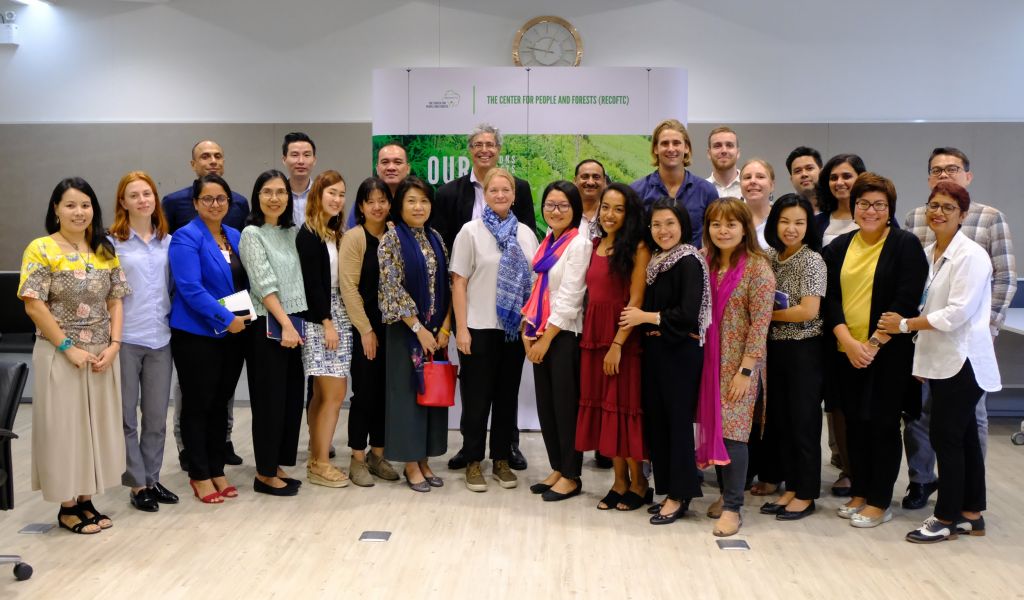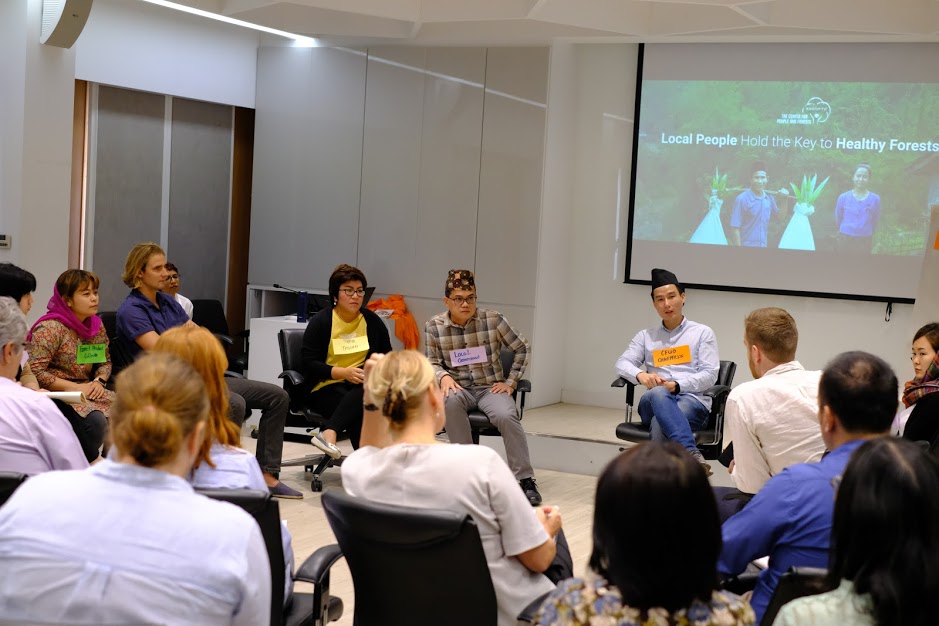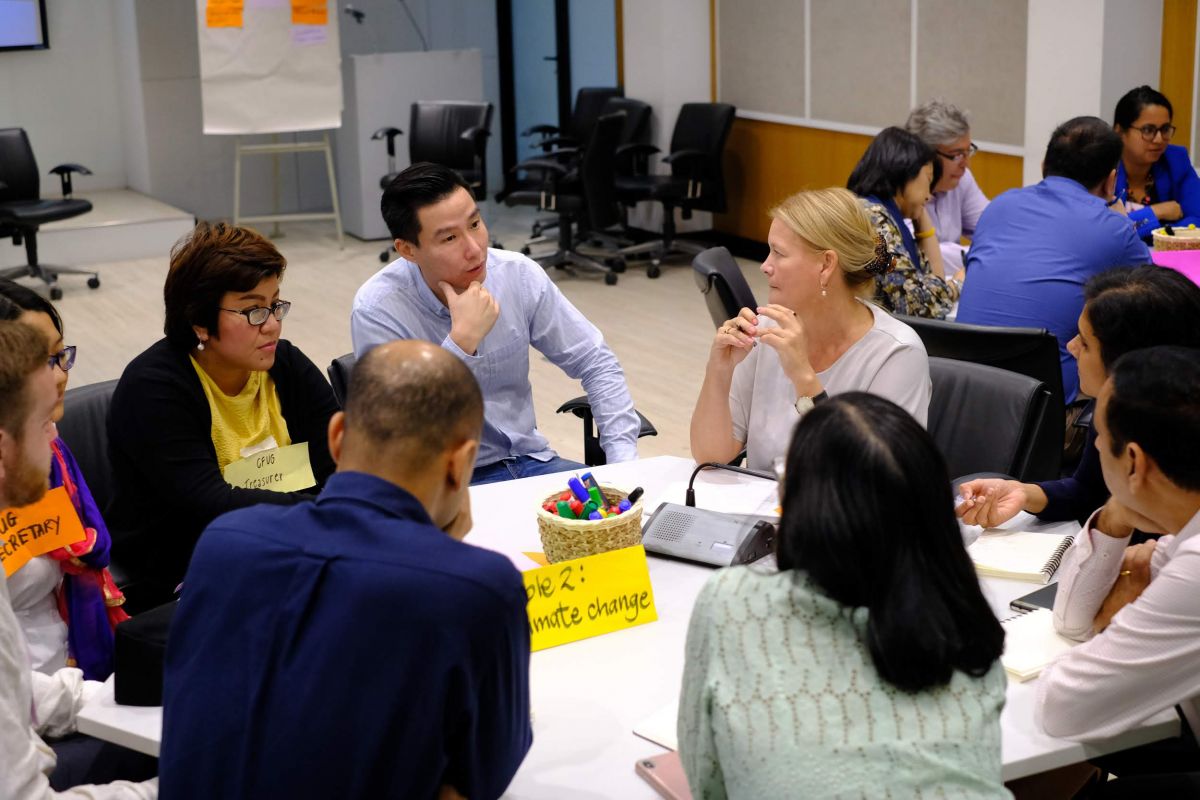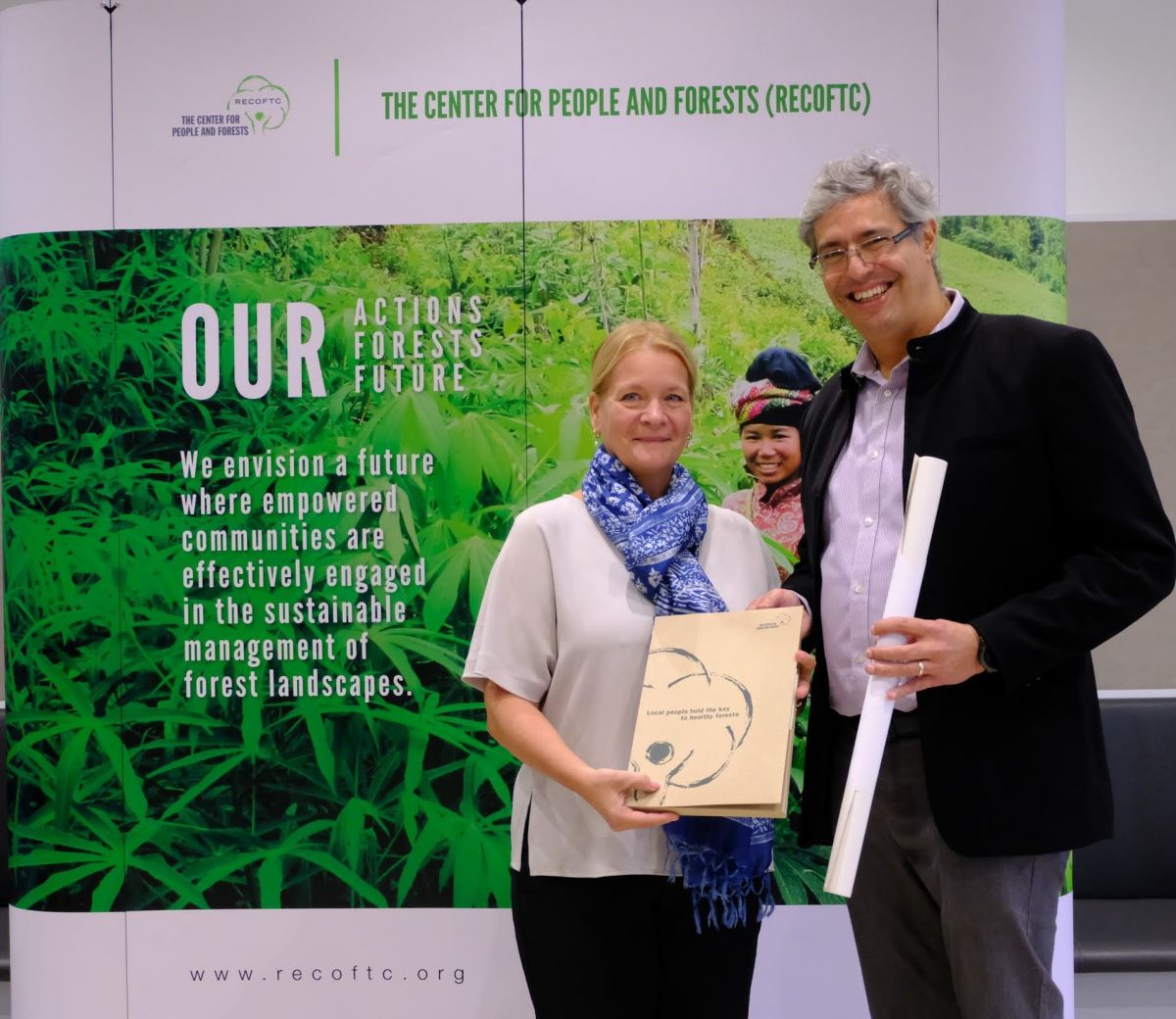The Government of Sweden through Sida visits The Center for People and Forests (RECOFTC)

“Partnerships are about leveraging relationships and connections between people,” Jana Thuaud, Partnership and Resource Mobilization Officer of The Center for People and Forests (RECOFTC), said during a visit from the Development Cooperation section at the Embassy of Sweden in Bangkok. “The Government of Sweden through Sida and The Center have demonstrated the importance of doing so over the years through numerous community forestry programmes,” she continued.
The Development Cooperation section and The Center (formerly called RECOFTC) have enjoyed a nurturing and strong partnership with one another for over three decades, with the Government of Sweden actively engaging in the establishment of RECOFTC’s mandate. “The secret to success is the collaboration between all partners,” noted Mr. Kriangkrai Thitimakorn, a Programme Officer for the Development Cooperation section.
Mr. Thitimakorn’s sentiment reflects the recent history of the two entities as well. Following their instrumental role in the beginning, the Government of Sweden began funding projects more heavily in 1997. And as of 2004, the Government of Sweden became a core fund donor of RECOFTC and continues its support and commitment to this day.

On 30 January 2019, the Development Cooperation section of the Embassy of Sweden in Bangkok and The Center celebrated its partnership by engaging in a role-playing exercise that reflected The Center’s facilitation methodology. Lok Mani Sapkota and Rejani Kunjappan of The Center facilitated the exercise, which consisted of a brief role-play of a Community Forestry User Group (CFUG) meeting in Nepal. This was followed by a break out discussion that focused on the importance of communications in highlighting key issues in development sector at the grassroots, national and regional levels.“The Government of Sweden has always been supportive of our efforts in the region,” The Center’s Executive Director, Dr. David Ganz, said. “As key partners, they have continuously shown their dedication to the principles and practice of community forestry, whether as a means of poverty reduction, climate change adaptation, or as an entry point for gender equity and human rights.”

Ms. Asa Heden, Counsellor and Head of the Development Cooperation -- Regional Asia and the Pacific, emphasized the need for strong communication skills to reinforce participatory methods: “Communications and the media are conducive to conveying messages that ensure marginalized voices are heard by more people,” Ms. Heden said.
Upon reflection, staff members and representatives from the Development Cooperation section also noted the educational benefits. “One of the best methods of educating is participation,” said Mr. Thitimakorn, referring to the use of participatory approaches both internally and externally. These remarks capture the essence of The Center’s methodology.
“Participatory approaches are fundamental to the work The Center does. These approaches are inherently intertwined with the principles of community forestry, including inclusion and equity,” Dr. Ganz added.

Overall, The Government of Sweden through Sida and The Center have enjoyed a productive partnership with substantial results. In the past thirty years, RECOFTC has trained over 60,000 people and helped to secure 15 million hectares of community forests. “This is the true legacy of our partnership,” Ms. Thuaud concluded. “It is about making a difference in people’s lives.”


